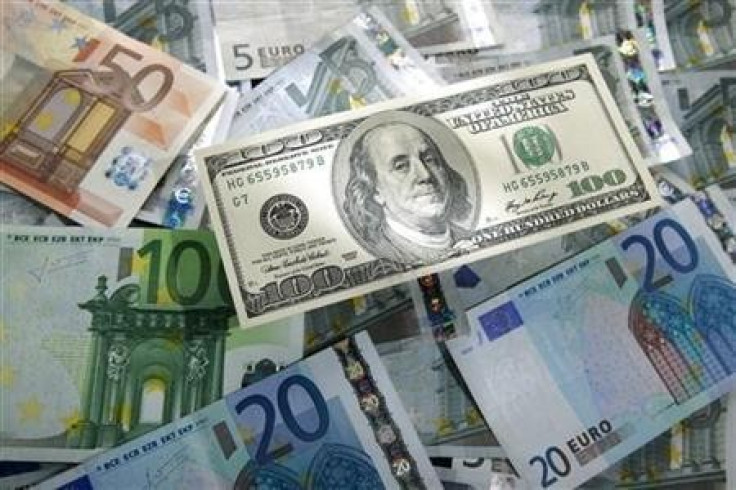Central Banks Watch: BoE, ECB and RBA to Set Rates; Draghi and Kuroda to Speak

The Bank of England, the European Central Bank and the Reserve Bank of Australia are scheduled to review their monetary policies, and ECB president Mario Draghi and Bank of Japan governor Haruhiko Kuroda will address the press in the week to 8 August.
Outside the G10 world, the Romanian central bank is on the rate review calendar while South Korean, Danish and Polish central banks will be watched for forex reserves data.
None of them are seen altering the rates this time, going by the recent policy statements from them and economic data releases, but the statements from major central banks will be watched keenly for additional rate cues.
Upbeat economic data from the US, a sharp rally in the dollar and related weakness in own currencies are likely to feature in the policy statements in addition to an assessment of the Fed's 30 July statement, and ongoing geopolitical issues.
Bank of England
The BoE rate review is on 7 August at 11:00 GMT. It is widely expected to keep the bank rate at 0.5% and the asset purchase target unchanged at £375bn.
The UK data after the last policy decision on 10 July were, on balance, on the hawkish side.
GDP growth for the second quarter came in at 3.1%, higher than the Q1 growth of 3%, and consumer price inflation quickened to 1.9% from a year ago from 1.5% in May, topping a consensus of 1.6%.
At the same time, retail sales growth slowed to 3.6% year-on-year in June from 3.7% while analysts were expecting a rise to 3.9%.
GfK consumer confidence fell to -2 from 1 and Markit manufacturing PMI dropped to 55.4 from 57.5 while the market estimates had been for better outputs than the actuals.
For the sterling, July was a month of correction after having touched a near six-year high of 1.7192 against the US dollar earlier in the month. The GBP/USD pair fell 1.8% in July and extended the losses on 1 August to a 50-day low of 1.6857.
June industrial output and the NIESR GDP estimate for the three months to July are the two important UK indicators due ahead of the BoE review.
European Central Bank
The last ECB decision was on 3 July where the main refinancing rate was left at 0.15%. This month's review is on 7 August and the consensus is for no change.
The economic and business climate surveys conducted for the eurozone and separately for Germany after the last policy review largely disappointed the market but the Markit manufacturing PMI surprised on the positive side.
The July ZEW economic sentiment for Germany fell to 27.1 from 29.8 and that for the eurozone dropped to 48.1 from 58.4.
However, consumer price inflation for the region as well as its largest constituent Germany came higher or better than expected in July.
CPI for the EU quickened to 0.1% month-on-month from -0.1% while German inflation came in at 0.3%, steady from June, but topping a market consensus of 0.2%.
The euro has fallen 2.2% in July to a more than eight-month low of 1.3367 before edging back up to 1.3446 on 1 August.
Reserve Bank of Australia
Economic data releases from Australia after the 1 July central bank decision to leave the official cash target at 2.5% were mostly on the negative side.
The trade deficit widened to $1,911m in May from $780m in the previous month, and the second quarter consumer price inflation came in at 3.0% year-on-year, while the market consensus was for a rise to 3.1% from 2.9% in Q1.
Australian unemployment rate rose to 6.0% in June from 5.9%, while the consensus was for a steady reading.
Positive outcomes were the May building permits data and the July performance of manufacturing index by AiG.
Building permits increased 15.2% from a year earlier, beating a consensus of 8.0% and compared with an April rise of 0.7%. The AiG index rose to 50.7 from 48.9.
This month's RBA review is on 5 August at 4:30 GMT, and the market widely expects the central bank to leave the main rate at 2.5%.
The 1.6% drop in the Australian dollar against its US counterpart in July is likely to influence Australian policymakers as they were concerned about the currency's recent rally that took it to an eight-month high above the 0.95 mark on 1 July.
Others
On 8 August Friday, the Bank of Japan will release its monetary policy statement and its chief Kuroda will hold a press conference but the timing has not been announced as yet.
The 1.4% drop in the Japanese yen to 103 levels against the dollar in July will likely reflect as a positive for the economy in the statement.
Romania has its key rate currently at 3.5%, and this month's review is on 4 August at 8:00 GMT.
© Copyright IBTimes 2024. All rights reserved.






